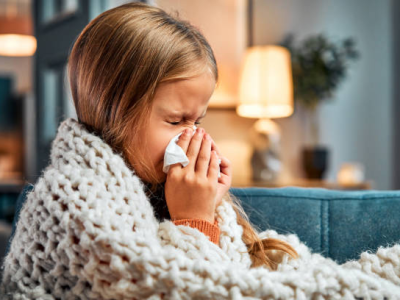Report describes UK outbreak of extensively drug-resistant Shigella
A study yesterday in The Lancet Infectious Diseases describes an ongoing outbreak of sexually transmitted, extensively drug-resistant (XDR) Shigella sonnei in the United Kingdom.
The outbreak began in September 2021 with the identification of an infected patient in England, followed by anecdotal reports of patients hospitalized with severe S sonnei infections in London in November and December, which prompted an investigation led by researchers from the UK Health Security Agency.
Genomic surveillance identified the infections as belonging to S sonnei clade 5. Cases were subsequently reported in Wales, Scotland, and Northern Ireland. Investigators with the Outbreak Control Team conducted whole-genome sequencing on patient isolates and collected demographic, epidemiologic, and clinical data from patients using questionnaires.
A total of 72 confirmed cases (70 of them in men, median age 34 years) were identified in the United Kingdom from Sep 1, 2021, to Feb 9, 2022. All cases were genotypically multidrug-resistant or XDR, exhibiting genotypic antimicrobial resistance determinants for aminoglycosides, sulfonamides, trimethoprim, fluoroquinolones, and macrolides. In addition, 66 of 72 isolates harbored blaCTX-M-27, a plasmid-mediated gene that confers resistance to ceftriaxone. Of the 33 patients with clinical data, 19 (58%) received antibiotics and 8 (24%) were hospitalized.
Of the 27 patients who filled out an outbreak questionnaire, 25 (93%) were HIV-negative, 21 (78%) were taking HIV pre-exposure prophylaxis (PrEP), and 11 (41%) reported bacterial sexually transmitted infections (STIs) in the past year that required antibiotics. Twenty-two (81%) reported engaging in one or more sequential oral and anal sexual acts in the week before symptom onset. Two of the patients were immunocompromised individuals whose infections were not associated with sexual transmission, which investigators say highlights the threat of wider transmission.
"Previous evidence has shown that sexually transmitted shigellosis can be transmitted sporadically outside sexual networks; enhanced surveillance for this outbreak provided further evidence of this," the investigators wrote. "Sporadic transmission outside sexual networks, leading to severe cases in immunocompromised individuals, highlights the wider public health risk of continued, uncontrolled transmission of XDR shigellosis."
The investigators added that improved surveillance and updated treatment guidelines for drug-resistant Shigella are needed, and suggested that public health messages about the prevention of shigellosis and other enteric STIs should be included in PrEP delivery.
Jul 26 Lancet Infect Dis study
CDC reports 12 more unexplained hepatitis cases in kids, 332 total
In a weekly update, the US Centers for Disease Control and Prevention (CDC) yesterday reported 12 more unexplained pediatric hepatitis cases in children, raising the national total to 332.
The number of affected states held steady, at 42.
In earlier reports, the CDC has said not all recently reported cases reflect new illnesses. Cases under investigation date back to October 2021. Also, an earlier data review from CDC found no increase in pediatric hepatitis above the prepandemic baseline level.
Scientists in multiple countries are investigating several possibilities, with an adenovirus link as the main focus. However, groups are exploring several other possibilities, including prior COVID-19 infection, cofactors, atypical immune response, or exposure to toxin triggers.
Jul 6 CDC unexplained hepatitis update
















